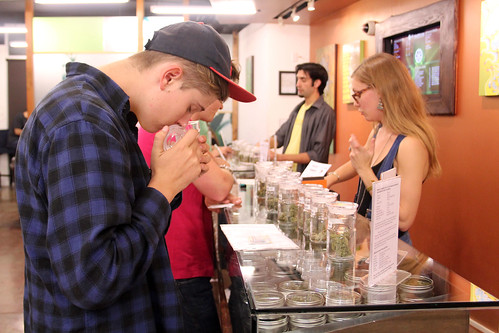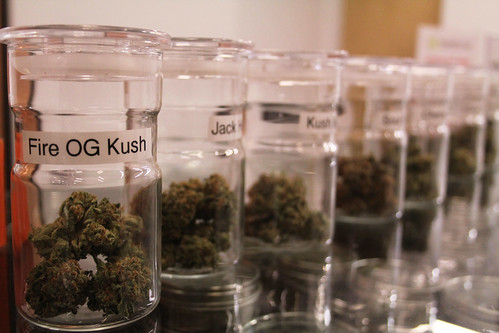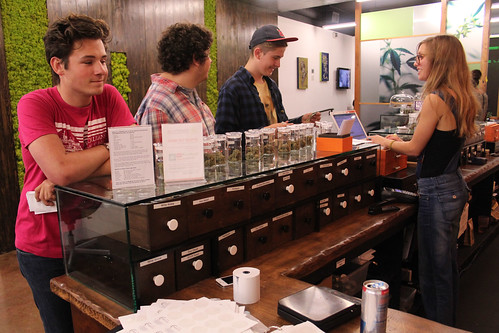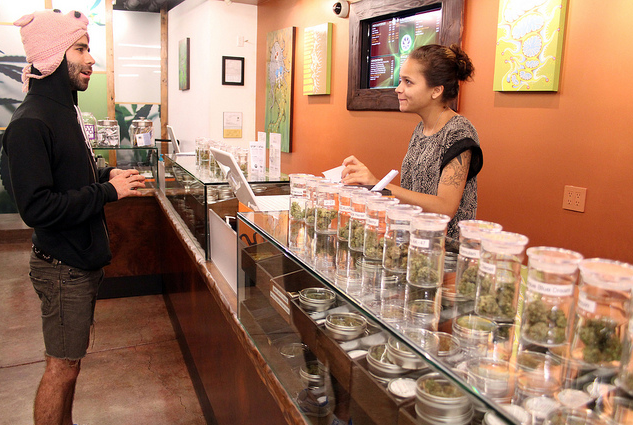
The war on medical marijuana took a new turn recently as landlords who rent to medical marijuana dispensaries were threatened with prosecution by the federal government in California.
Earlier this month, federal prosecutors in California ordered dozens of dispensaries to shut down within 45 days. If the owners or landlords do not comply with the warning, they face criminal charges or seizure of their property, according to a press release issued by the Department of Justice.
Federal procedures could have sizable consequences in California, where an estimated $1.5 billion medical marijuana transactions have taken place annually, according to an economic analysis by California’s National Organization for the Reform of Marijuana Laws.
California receives roughly $100 million in sales taxes from dispensaries yearly. Numerous cities, including Sacramento, have sought to make up for depleted assets by taxing local medical marijuana dispensaries.
“They don’t have the reasonable amount of money to shut down every dispensary in the state,” said Dale Jones, spokeswoman for “Yes on Proposition 19 also known as the Regulate, Control and Tax Cannabis Act” and also executive chancellor at cannabis trade school Oaksterdam University in Oakland. “It’s going to be like a tornado – some will get destroyed while others will be left untouched.”
Federal officials are primarily going after medical dispensaries that are close to schools, parks, sports fields and other places that may be near children.
“Marijuana stores operating in proximity to schools, parks and other areas where children are present send the wrong message to those in our society who are the most impressionable,” said Melinda Haag, the United States Attorney for the Northern District of California, in the DOJ press release. “Although our initial efforts in the Northern District focus on only certain marijuana stores, we will almost certainly be taking action against others. None are immune from action by the federal government.
Dispensaries in the Bay Area, including San Francisco and Marin counties, were sent letters that warn that California’s medical marijuana law does not protect against property seizure or prosecution under federal law.
Under state law, dispensaries cannot operate within 600 feet of schools. However, under federal law Title 21 USC 860, dispensaries can be subjected to penalization if they participate in the sale or distribution of controlled substances within 1,000 feet of a public or private elementary, vocational or secondary school, or a public or private college, junior college or university.
In addition, dispensaries can also be penalized if they are within 100 feet of a public or private youth center, public swimming pool or video arcade facility.
Among the local medical dispensaries that are located close to schools are 208 Valencia Street Caregivers and Medithrive.
A worker at Medithrive, who wishes to remain anonymous, said the landlord has not given them any notice to leave and that, as far as they know, they are not being affected.
Peter Avila, the principal at Marshall Elementary, said that even though the school is located right behind Medithrive, he does not have any issues with the dispensary.
“Alcohol and other illicit drugs are much more of a problem in our neighborhood,” Avila said. “I have not had one complaint about Medithrive, not one.”
The Marin Alliance for Medical Marijuana also received a letter asking the landlord to evict the dispensary or risk imprisonment.
Greg Anton, a lawyer who represents MAMM, said that the federal government is going to accomplish the exact opposite of what they are trying to do.
“The federal government is indirectly supplying marijuana to children,” Anton said. “If they close dispensaries down, people will take marijuana to the streets where there won’t be any regulation.”
According to Anton, MAMM is one of the oldest and longest running dispensaries in the state.
“It will probably close down after 15 years of no complaints,” Anton said.
In 2009, the DOJ sent out a memo saying that prosecutors would not seek to arrest medical marijuana users and suppliers as long as they complied with state laws. However, federal prosecutors and the DEA have continued to arrest and prosecute medical marijuana providers.
Students at SF State have mixed feeling about the consumption of cannabis.
“The traditional ways that people use marijuana, like for getting in touch with the spirits or for medical use, is fine by me,” said Chantal Roberts, 23, consumer and family sciences major. “But right now a lot of people are abusing it and it’s getting harder to regulate.”
Gary Lamb, 33, psychology major, believes that while the use of medical marijuana is understandable, it’s also understudied in terms of its effects.
“It’s kind of hypocritical because alcohol is just as dangerous,” Lamb said. “But more research needs to be done on the effects that marijuana has on the brain before we try to legalize it.”






